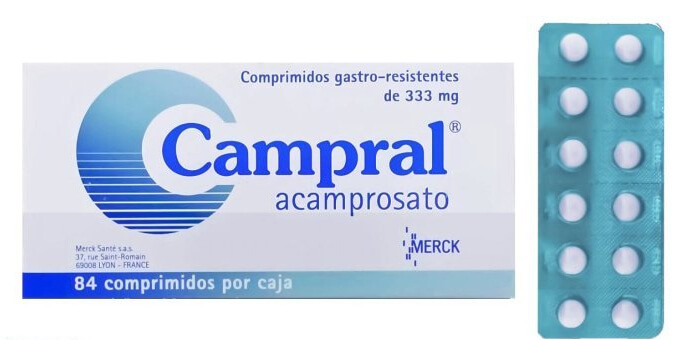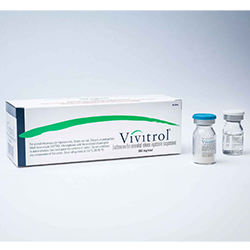Define: AUD (Alcohol Use Disorder)
- Diagnosed and treated as a chronic and progressive illness, so your medical aid will cover treatment.
- It involves compulsive alcohol consumption despite negative consequences.
- Impairs various aspects of life, such as physical health, relationships, and work. And yet the drinking persists.
- Characterised by cravings and loss of control.
- Withdrawal symptoms occur when trying to quit.
- Tolerance to alcohol increases over time.
- Comprehensive treatment and support are essential for long-term recovery.
Overview of Alcohol Addiction Rehab Centers
AUD treatment centers are specialised facilities that provide a comprehensive range of services to help individuals overcome alcohol addiction. Here’s a breakdown of what they offer:
Continuum of Care:
| Component | Description |
|---|---|
| Outpatient | This involves regular visits to a treatment provider or facility for therapy sessions while the individual continues to live at home. |
| Detox | This is the initial phase of treatment where the body is cleansed of alcohol. Medical supervision is often required due to withdrawal symptoms. |
| Inpatient Primary | This involves staying at a facility for a period, typically 30 days, for intensive treatment. |
| Long-Term Secondary | This is an extended period of treatment following primary care, which can last several months and focuses on helping individuals adjust to a sober lifestyle. |
| Aftercare | This includes ongoing support after the completion of initial treatment, such as counselling and participation in support groups to maintain sobriety. |
Treatment Elements Across All Phases:
| Component | Description |
|---|---|
| Individual Counselling | One-on-one sessions with a therapist to address personal issues related to addiction. |
| Group Therapy | Therapy sessions are conducted in a group setting where individuals can share experiences and learn from others. |
| Lectures | Educational sessions about addiction, recovery, and related topics. |
| Cognitive Behavioural Therapy (CBT) | A type of psychotherapy that helps individuals identify and change negative thought patterns and behaviours. |
| Motivational Enhancement Therapy (MET) | A counselling approach designed to evoke internally motivated change. |
| Twelve-Step Facilitation (TSF) | Individual therapy is typically delivered in 12 weekly sessions to prepare people to become engaged in 12-step mutual support programs. |
| BrainWorking Recursive Therapy (BWRT) | While I couldn’t find specific references to BWRT in the context of alcohol addiction rehab centres, BWRT is generally a type of therapy that aims to help individuals respond differently to their triggers by changing their automatic thought patterns. |
Please note that the exact services and therapies offered can vary between different rehab centers.
Inpatient hospitalization is the highest level of rehab available. It involves individuals residing in a facility and receiving round-the-clock supervision. Inpatient rehab is suitable for individuals who require intensive medical and therapeutic interventions to overcome their alcohol addiction. These programs typically include detoxification, individual and group therapy sessions, and medical monitoring.
 Primary care inpatient rehabs are similar to inpatient hospitalization but may have a slightly lower level of intensity. These programs also provide 24/7 rehab but may have a more flexible approach, allowing residents to engage in therapeutic activities and outings. Inpatient rehab is an appropriate option for individuals who require a structured environment but may not need the same level of medical supervision as inpatient hospitalization.
Primary care inpatient rehabs are similar to inpatient hospitalization but may have a slightly lower level of intensity. These programs also provide 24/7 rehab but may have a more flexible approach, allowing residents to engage in therapeutic activities and outings. Inpatient rehab is an appropriate option for individuals who require a structured environment but may not need the same level of medical supervision as inpatient hospitalization.
Intensive outpatient rehab is a step down from inpatient residential and offers a higher level of care compared to traditional outpatient programs. Intensive outpatient programs typically involve individuals attending therapy sessions and interventions several times a week, often for several hours each day. These programs allow individuals to attend rehab while still being able to live at home and engage in their daily activities.
Outpatient rehab is the least intensive level of care provided. It involves individuals attending individual and group therapy sessions on a less frequent basis, often once or twice a week. Outpatient programs are suitable for individuals who have completed primary and secondary care or require ongoing relapse prevention strategies as part of their long-term recovery plan.
Some alcohol addiction rehabs may also offer specialised programs tailored to specific populations. These programs may address the unique needs of individuals, such as those with co-occurring mental health issues, individuals from specific cultural or ethnic backgrounds, or individuals with specific medical conditions. These specialised programs provide targeted interventions to ensure the best possible outcomes for individuals seeking help for alcohol addiction.
Alcoholism detox centres in South Africa offer a range of rehab options and options to address the specific needs of individuals struggling with alcohol use problems. From inpatient hospitalization to primary care, intensive outpatient, and outpatient, these facilities provide a continuum of care that allows individuals to receive rehabilitation. Specialised programs tailored to specific populations further enhance the effectiveness of these options. Choosing the right rehab centre based on individual needs and circumstances is important.
Types of Treatment Facilities
| Types of Treatment Facilities | Description |
|---|---|
| Inpatient Hospitalization | Inpatient hospitalization is the most intensive level of care available at alcohol addiction rehab centres. It involves individuals residing in a hospital and receiving full-time detoxification. Suitable for those requiring intensive medical and therapeutic interventions, including detoxification, individual and group therapy sessions, and medical monitoring. |
| Residential Treatment | Residential treatment programs are similar to inpatient hospitalization but may have a slightly lower level of intensity. They provide 24/7 nursing care and offer a more flexible approach, allowing residents to engage in therapeutic activities and outings. Suitable for those who need a structured environment with less medical supervision. |
| Intensive Outpatient Treatment | Intensive outpatient rehab is a step down from inpatient residential and offers a higher level of care compared to traditional outpatient programs. It involves one-on-one addiction counselling and group therapy several times a week, often for several hours each day. Allows individuals to live at home and engage in daily activities. |
| Outpatient Treatment | Outpatient rehabilitation is the least intensive level of care. It involves therapy sessions on a less frequent basis, often once or twice a week. Suitable for individuals who have completed primary or secondary care and require relapse prevention strategies as part of long-term recovery. |
| Specialised Programs | Some alcohol rehab centres offer specialised programs tailored to specific populations. These programs address unique needs, such as co-occurring mental health disorders, specific cultural or ethnic backgrounds, or specific medical conditions. Provide targeted interventions for better outcomes. |
Alcohol rehabs in South Africa offer a range of rehabilitation options to cater to the diverse needs of individuals seeking help for AUD’s. These facilities provide various levels of care to ensure comprehensive and effective rehabilitation. From intensive inpatient rehab to less intensive outpatient rehab, individuals can find the appropriate level of care that suits their specific needs and circumstances. Here are the types of rehab centres commonly available at alcohol rehab centres.
Inpatient Programs
Inpatient programs for alcohol addiction offer patients round-the-clock care in a structured and supervised environment. These programs provide a higher level of intensity and medical supervision compared to other options.
 Inpatient rehab facilities generally have a duration of 30 days or more, providing individuals with ample time to focus on their healing. The length of stay can vary depending on the individual’s needs and progress.
Inpatient rehab facilities generally have a duration of 30 days or more, providing individuals with ample time to focus on their healing. The length of stay can vary depending on the individual’s needs and progress.
One of the key benefits of inpatient rehabilitation is the 24-hour medical supervision provided. This ensures that individuals undergoing alcohol detoxification are monitored closely for any potential complications or withdrawal symptoms.
In addition to medical supervision, inpatient rehabs offer personalised therapeutic interventions. Group therapy sessions allow individuals to connect with others who are also on the road to healing, creating a sense of camaraderie. Individual therapy sessions provide an opportunity for individuals to work one-on-one with a therapist to explore underlying issues and develop coping mechanisms.
Medication management is another important aspect of inpatient treatment. Skilled medical professionals can assess an individual’s need for medication to minimize withdrawal symptoms and manage any co-occurring mental health issues.
Case management services play a crucial role in coordinating and connecting individuals both during and after their stay in an inpatient facility. This ensures a holistic approach and the transition to continued care.
Overall, inpatient programs provide a comprehensive and structured environment where individuals can receive intensive rehab for their alcohol addiction. The 24-hour medical supervision and personalised care offered in these programs help more severe AUD cases.
Outpatient Programs
Outpatient programs for alcohol addiction in South Africa offer individuals the flexibility to receive help while still maintaining their daily lives. These programs are suitable for individuals who do not require 24-hour medical supervision or intensive care.
One type of outpatient program is an intensive outpatient program (IOPs). These programs are more structured than traditional outpatient programs. Individuals attend therapy sessions several times a week, typically for a few hours each session. IOPs often include individual counselling, group therapy, and educational sessions on addiction.
Another type of outpatient program is outpatient detoxification. This program allows individuals to undergo the detoxification process while living at home. Medical professionals closely monitor the individual’s progress and provide medication management if needed to alleviate withdrawal symptoms. Outpatient detoxification programs are suitable for individuals with mild to moderate alcohol dependence who do not require 24-hour medical care.
Outpatient programs offer several benefits. One key advantage is flexibility. Individuals can schedule their therapy sessions around their work or personal commitments. This allows them to continue fulfilling their responsibilities while receiving help.
 Another benefit is the ability to return home after each day’s work at the rehab. This can provide a sense of comfort from friends and family. Additionally, being in a familiar environment can help individuals practice applying their new coping skills and strategies in real-life situations.
Another benefit is the ability to return home after each day’s work at the rehab. This can provide a sense of comfort from friends and family. Additionally, being in a familiar environment can help individuals practice applying their new coping skills and strategies in real-life situations.
However, it’s important to note that outpatient programs do not provide the same level of accountability and safety as inpatient or residential programs. Individuals in outpatient programs may face more triggers and temptations in their daily lives. It’s crucial for individuals to have a strong system in place outside of their rehab sessions.
In conclusion, outpatient programs for alcoholism in South Africa, such as intensive outpatient programs and outpatient detoxification, provide individuals with flexibility and the ability to continue living their lives while getting counselling. These programs are suitable for individuals who do not require 24-hour medical supervision or intensive care. While outpatient programs offer several benefits, it’s important to consider the level of accountability and safety they provide compared to residential programs.
Residential Treatment Centers
Inpatient primary care for alcohol addiction provides a structured and supportive environment for alcoholics and addicts. These centres offer a comprehensive approach and typically require individuals to stay on-site for a designated period of time. The duration of stay in these centres can vary depending on the individual’s needs and the severity of their alcohol addiction.
One of the main reasons someone may choose inpatient rehab is the intensity and focus of the programs offered. Primary care centres provide 24-hour care and supervision. In these centres, individuals have access to a range of therapies such as individual counselling, group therapy, cognitive behavioural therapy (CBT), and holistic approaches. This multidimensional approach helps individuals address the root causes of their addiction, develop coping strategies, and build a solid foundation for long-term wellness.
Inpatient alcohol rehabs also offer a supportive community. Being surrounded by peers who share similar struggles can provide a sense of understanding and encouragement. Additionally, the structured environment helps individuals establish routines and healthy habits that can be carried into their everyday lives.
It’s important to note that inpatient programmes may have specialised programs tailored to specific groups. These programs cater to the unique needs and experiences of individuals such as couples, teens, seniors, veterans, and members of the LGBTQIA+ community. Specialised programs provide additional aid and address specific challenges faced by these groups, ensuring a more targeted and effective approach.
Inpatient rehabs offer a comprehensive approach to alcohol addiction. The duration of stay in these centres can vary depending on the individual’s needs, and specialised programs are available for specific groups. With a focus on therapy, counselling, and a supportive community, residential centres provide individuals with the tools and help they need to overcome alcohol addiction and achieve long-term sobriety.
Embracing sobriety seemed impossible until Changes. The compassionate team led by Sheryl has been a blessing. My journey to recovery found its cornerstone here. Forever indebted.
Omw!!! I have absolutely no idea how to express my gratitude! My son initially went to another rehab. They couldn't contain him there and he was sent to a state hospital, where he was restrained.
My life was spiralling out of control. The moment I contacted Changes, they offered immediate support. After just one month, I found hope and direction I hadn't felt in years. Forever grateful to the team.
I came to Changes a complete wreck. Didn’t want to do anything about my drug addiction. I fought the system for as long as I could but eventually my mind was changed about what I had to do.
Tonight I attended a very informative support group hosted by Sheryl. Thank you so much for all the support Changes offers to family members. Keep up the amazing, life-changing work. We absolutely salute you!
Rehabilitation Centers
Rehabilitation centres play a vital role in the rehab of individuals struggling with alcohol addiction. These centres offer a range of programs and services designed to sustain individuals achieving sobriety.
 There are different types of rehabilitation centres available, including inpatient programs, outpatient programs, and inpatient rehabs. Inpatient programs provide a highly structured and intensive approach, with individuals residing at the facility for a specified period of time. This allows for round-the-clock care and supervision, ensuring individuals have access to the aid they need at all times.
There are different types of rehabilitation centres available, including inpatient programs, outpatient programs, and inpatient rehabs. Inpatient programs provide a highly structured and intensive approach, with individuals residing at the facility for a specified period of time. This allows for round-the-clock care and supervision, ensuring individuals have access to the aid they need at all times.
On the other hand, outpatient programs offer flexibility, allowing individuals to receive help while still living at home. This type of program is suitable for individuals with less severe addiction issues or those who have completed an inpatient program.
Primary care offers 24-hour care and supervision. These centres create a supportive community where individuals can immerse themselves in their new way of life. Various therapies and treatments are offered, such as individual counselling, group therapy, and cognitive behavioural therapy (CBT). This multidimensional approach helps individuals address the root causes of their addiction and develop healthy coping strategies.
In addition to therapy and counselling, social services are available at rehabilitation centres. These services provide practical tools, such as assistance with housing, employment, and legal issues. Alcoholics Anonymous (AA), also plays a crucial role in the long-term process by offering a network of individuals who understand patients new to sobriety.
Overall, rehabilitation centres provide a range of options to help individuals overcome alcohol addiction. Whether it’s through inpatient programs, outpatient programs, or inpatient rehab, social services further enhance the recuperation process by providing practical resources and a fellowship.
Social Services and Support Groups
Social services and support groups play a vital role in alcohol addiction rehab, providing individuals with the necessary resources. These services help individuals build a new social network, find drug-free activities, establish healthy relationships, and avoid stressful environments that may trigger relapse.
Peer-led groups, such as Alcoholics Anonymous (AA) and Narcotics Anonymous (NA), offer a safe and non-judgmental space for individuals to share their experiences, struggles, and successes with others who have faced similar challenges. These groups follow a mutual help approach, where members provide empathy, understanding, and encouragement to one another. The 12-step program used by AA and NA is a widely recognized and effective method for maintaining sobriety by working through a structured process of self-reflection, acceptance, and personal growth.
There are also organizations like Al-Anon and Nar-Anon that focus on providing help and education to friends and relatives of individuals struggling with addiction. These groups offer a space for loved ones to share their own experiences, gain insights into addiction, and learn healthy ways to not co-dependently enable their family member. The information and resources provided by these organizations can help family members and friends better understand the complexities of addiction and develop strategies to not enable their loved ones.
Join our family programme to learn more: 081-444-7000
Social services also play a crucial role. These services can assist with various practical matters, such as housing, employment, and legal issues, which may be significant barriers to achieving and maintaining sobriety. By addressing these practical concerns, alcoholic patients can focus on what they need to do to get well, without trying to navigate these complex systems on their own.
They not only address the psychological and emotional aspects of addiction but also provide invaluable practical guidance and a sense of community. These services and groups contribute to the development of a strong, long-term network.
Alcohol Treatment Medications
AUD medications are an important component of rehab centres in helping individuals overcome alcohol addiction. Here are some commonly used medications:
| Medication | Description |
|---|---|
| Benzodiazepines | Often diazepam or lorazepam, these meds manage withdrawal symptoms from alcohol. They calm the nervous system, thus tackling anxiety, seizures, and insomnia during detox. Nonetheless, short-term usage advised due to potential for dependence. |
| Acamprosate | Also dubbed Campral, this medication minimises alcohol cravings. Acamprosate brings balance to specific brain chemicals disrupted by extended alcohol use. Demonstrates potential in lowering relapse rates and fostering lasting sobriety. |
| Naltrexone | Available as oral tablets (ReVia) or a monthly injection (Vivitrol), Naltrexone blocks alcohol’s brain effects. By stifling cravings and the joy from alcohol consumption, the medication aids in maintaining motivation and minimising relapse risks. |
| Disulfiram | Known as Antabuse, this drug triggers nasty reactions upon alcohol consumption. By thwarting an enzyme that processes alcohol, toxic by-products accumulate in the body. Disulfiram’s unpleasant effects serve as a potent deterrence, bolstering abstinence. |
 These alcoholism medications, when used under medical supervision and in combination with counselling and support, can significantly increase the chances of success. It is important to consult with healthcare professionals to determine the most appropriate medication based on individual needs and medical history.
These alcoholism medications, when used under medical supervision and in combination with counselling and support, can significantly increase the chances of success. It is important to consult with healthcare professionals to determine the most appropriate medication based on individual needs and medical history.
Benzodiazepines (Librium, Valium, Ativan, Etc.)
Types of Benzodiazepines in Alcohol Addiction Treatment: Librium, Valium, Ativan
Benzodiazepines, such as Librium, Valium, and Ativan, are commonly used in alcohol rehab to help manage withdrawal symptoms and reduce cravings.
These medications work by calming the nervous system and reducing anxiety, seizures, and insomnia that can occur during the detoxification process. They bind to specific receptors in the brain, enhancing the effects of a neurotransmitter called gamma-aminobutyric acid (GABA), which has a calming and sedating effect.
Librium, Valium, and Ativan are among the benzodiazepines commonly prescribed during alcohol detoxification. They have a similar mechanism of action and are effective in reducing the severity of withdrawal symptoms, such as tremors, agitation, and hallucinations.
Additionally, benzodiazepines can help individuals cope with the cravings for alcohol that often arise during the early stages. By reducing anxiety and promoting relaxation, these medications help people through the detox phase and into daily routines.
However, it is important to note that benzodiazepines should be used under close medical supervision due to their potential for dependence and abuse. They are typically prescribed for a short period of time, specifically during the initial stages of alcohol withdrawal.
Overall, benzodiazepines like Librium, Valium, and Ativan play a valuable role in alcoholism rehab by helping individuals manage withdrawal symptoms and reduce cravings, providing essential support during the early phase.
Acamprosate (Campral)
Acamprosate (Campral): Regulating Brain Receptors to Reduce Alcohol Cravings after Detox
Acamprosate, also known as Campral, is a medication commonly prescribed after detoxification. Its primary function is to regulate brain receptors that have been affected by alcohol use, thereby reducing alcohol cravings.
 Unlike benzodiazepines used during alcohol detox, acamprosate does not directly address withdrawal symptoms. Instead, it focuses on the underlying neurochemical imbalances that drive cravings for alcohol. By targeting brain receptors associated with the rewarding effects of alcohol, acamprosate can help individuals resist the urge to drink and maintain their sobriety.
Unlike benzodiazepines used during alcohol detox, acamprosate does not directly address withdrawal symptoms. Instead, it focuses on the underlying neurochemical imbalances that drive cravings for alcohol. By targeting brain receptors associated with the rewarding effects of alcohol, acamprosate can help individuals resist the urge to drink and maintain their sobriety.
It is important to note that acamprosate should not be seen as a solution to ongoing alcohol consumption. It does not prevent or alleviate withdrawal symptoms if an individual continues to drink. Instead, it serves as a support tool in the long-term rehab process after detoxification.
Overall, acamprosate (Campral) is a valuable medication that can play a crucial role in reducing alcohol cravings. It should be used as part of a treatment plan under the guidance and supervision of medical professionals.
Naltrexone (Vivitrol)
Naltrexone, commonly known by its brand name Vivitrol, is a medication frequently utilised for individuals struggling with alcohol addiction. It functions by binding with endorphin receptors in the brain, effectively blocking the euphoric effects of alcohol.
Naltrexone can be administered in two different forms: as a daily pill or as a once-a-month injectable. The pill form allows individuals to take a prescribed dose every day, while the injectable option provides an extended-release version that only needs to be administered once a month.
 By blocking the pleasurable sensations associated with alcohol consumption, Naltrexone helps reduce the allure and cravings for alcohol, supporting individuals in maintaining their sobriety. It is important to note that Naltrexone should always be taken under the guidance and supervision of a healthcare professional.
By blocking the pleasurable sensations associated with alcohol consumption, Naltrexone helps reduce the allure and cravings for alcohol, supporting individuals in maintaining their sobriety. It is important to note that Naltrexone should always be taken under the guidance and supervision of a healthcare professional.
As with any medication, individual experiences and results may vary, and it is crucial to discuss the potential benefits and side effects of Naltrexone with a healthcare provider to determine if it is the right alternative for alcohol addiction.
Disulfiram (Antabuse)
Disulfiram, also known as Antabuse, is a medication commonly used in alcohol rehabs to deter individuals from consuming alcohol. It works by causing unpleasant symptoms when alcohol is consumed, acting as a deterrent to help prevent relapse.
When someone takes Disulfiram and then drinks alcohol, they will experience symptoms that can include nausea, vomiting, headache, flushing, and sweating. These symptoms occur because Disulfiram inhibits the enzyme that breaks down alcohol in the body, leading to a buildup of toxic byproducts.
This medication is typically taken daily, which can be a challenge for some individuals. However, the need for daily administration is what makes Disulfiram effective as a deterrent. Knowing that even a small amount of alcohol can trigger unpleasant symptoms can help reinforce the motivation to stay sober.
Disulfiram is less commonly prescribed compared to other medications for AUD rehab, such as Naltrexone or Acamprosate. However, it can be a valuable option for individuals who are highly motivated to stop drinking and are seeking an additional tool.
It is important to note that Disulfiram should always be taken under the guidance and supervision of a healthcare professional. They can provide the necessary information, monitor for any potential side effects, and ensure that it is used safely and effectively.
Developing An Aftercare Plan
An aftercare plan is an essential step. It involves creating a structured and supportive plan to help maintain sobriety and prevent relapse. An aftercare plan is personalised and tailored to meet each individual’s specific needs and goals.
The purpose of an aftercare plan is to provide ongoing support and resources to individuals as they transition back into their daily lives after rehab. It helps them navigate potential triggers, develop healthy coping mechanisms, and maintain their physical and mental well-being. Here are some essential components of an effective aftercare plan:
| Component | Description |
|---|---|
| Continued Therapy | Crucial to keep up with therapy sessions like individual counselling or group therapy post-rehab. Provides a safe space to explore underlying issues, tackle emotional challenges, and devise coping strategies for stress and cravings. |
| Support Groups | Vital for maintaining sobriety. Groups such as Alcoholics Anonymous or Narcotics Anonymous offer a sense of community and accountability. These groups also present a venue for sharing experiences and seeking guidance. |
| Lifestyle Changes | In the early phase of recovery, changes in lifestyle are essential. This could mean alterations in diet, exercise, sleep patterns, and stress management. Activities like regular exercise and proper diet contribute significantly to well-being and sobriety. |
| Relapse Prevention | An effective aftercare plan must contain strategies for preventing relapses. This involves identifying high-risk situations, devising coping mechanisms, and establishing a game plan for possible relapses. |
| Medication Management | For those on prescribed medication, sticking strictly to the prescribed dosage is vital. This involves ongoing communication with healthcare providers about any side effects or concerns. |
| Ongoing Education | Continual learning about alcohol addiction, mental health, and recovery remains key. This might entail reading relevant books, attending workshops, and staying up-to-date with current research. |
| Healthy Relationships | Building a network of supportive, understanding friends and family proves critical for maintaining sobriety. Fostering such relationships contributes to overall mental health, provides a buffer during tough times, and opens doors for personal growth. |
| Regular Check-ins | Scheduled check-ins with a therapist or counsellor help in tracking progress. These meetings are opportunities to discuss challenges, celebrate achievements, and adjust the aftercare plan as required. |
Bear in mind, this aftercare strategy remains flexible, tailored to each individual’s unique circumstances. By piecing together a robust aftercare plan, one improves the odds of sustaining sobriety, relishing a rewarding life post-recovery, and minimising relapse risks.
Digital Support Group – Addiction Recovery
In today’s modern age, technology has transformed the way we connect and access support, including for those struggling with addiction. Digital support groups have become a valuable resource for individuals seeking addiction recovery. These virtual communities offer a safe and accessible platform for individuals to connect with others who understand their struggles, share experiences, and provide ongoing support. Digital support groups can provide a convenient and flexible option for those who may not have access to in-person support or prefer the anonymity and convenience of online interactions. Through these digital communities, individuals can find the motivation, guidance, and encouragement they need.
Prevalence of Alcohol Use Disorders in South Africa
Alcohol use disorders (AUD), also known as alcohol addiction or alcoholism, are a significant public health concern. The prevalence of AUD in SA is alarmingly high, leading to a range of social, economic, and health problems. According to the World Health Organization (WHO), South Africa has one of the highest rates of alcohol consumption in Africa, with the average person consuming about 9.5 litres of pure alcohol per year.
One of the contributing factors to the high prevalence of alcohol use disorders in SA is the cultural acceptance of alcohol consumption. Alcohol is often seen as a part of social interactions, celebrations, and everyday life. It is deeply ingrained in society, making it challenging to address the issue effectively.
The consequences of (AUD) in SA are far-reaching. Excessive alcohol consumption not only leads to physical health problems but also contributes to the high rates of crime, road accidents, and domestic violence in the country.
The impact of alcohol on mental health is also a significant concern. AUD’s often co-occur with mental health issues, such as depression and anxiety. Substance abuse and mental health disorders can create a vicious cycle, with each condition exacerbating the other. Lack of access to mental health services and stigma surrounding mental health issues further compound the problem.
Recognizing the urgent need to address alcohol use disorders and their associated consequences, the South African government has taken steps to implement measures aimed at reducing alcohol-related harm. These measures include increasing the legal drinking age, imposing stricter regulations on alcohol sales and advertising, and implementing public awareness campaigns on the risks and consequences of excessive alcohol consumption.
Efforts to address AUD in South Africa also involve the establishment of alcohol addiction rehab centers. These clinics provide a range of rehabilitation choices tailored to the individual needs of those struggling with alcohol addiction. Residential or inpatient treatment programs offer intensive rehabilitation, allowing individuals to focus solely on their recovery. These programs typically involve a combination of behavioural therapies, medical care, and support to address both the physical and psychological aspects of alcohol addiction.
Outpatient programs are another form of rehab. These programs allow individuals to attend group therapy and counselling while still being able to live at home and engage in their daily activities. Intensive outpatient programs provide a higher level of care, with individuals attending therapy sessions and other treatment interventions several times a week.
Rehab centres in South Africa also offer partial hospitalization programs, which provide comprehensive treatment during the day while allowing individuals to return home in the evenings. This level is suitable for individuals who require more structure than outpatient programs but do not need 24/7 residential rehab.
The process in alcoholism rehab typically includes detoxification, therapy, support groups, and relapse prevention strategies. Medical professionals play a crucial role in managing alcohol withdrawal symptoms during the detoxification phase to ensure the safety and comfort of patients.
Behavioural therapies, such as cognitive-behavioural therapy (CBT) and motivational interviewing, are commonly used to address the psychological aspects of alcohol addiction. These therapies aim to help individuals identify and change unhealthy patterns of thinking and behaviour, develop coping skills, and build a strong support network.
In addition to traditional approaches, some rehabs in South Africa also incorporate alternative therapies and holistic approaches, such as mindfulness meditation, yoga, art therapy, and equine therapy.
Choosing the right rehab centre for alcohol addiction is crucial. It is essential to consider the level of therapy provided, the expertise of the treatment providers, the types of programmes offered, and the availability of aftercare rehab. Different individuals may require different levels of supervision based on their unique needs.
AUD’s are a prevalent issue in South Africa, with far-reaching consequences for individuals, families, and communities. The high rates of alcohol consumption and cultural acceptance of drinking pose significant challenges in addressing the problem effectively. However, the establishment of alcohol addiction rehab facilities and the implementation of measures by the government showcase the commitment to addressing the issue. Through a combination of alcohol addiction rehab centers phases and public awareness campaigns, South Africa can work towards reducing the prevalence of alcohol use disorders and improving the overall well-being of its people.
Find Treatment Options Today
Finding the right alcohol addiction rehab is crucial for individuals struggling with alcohol use disorders. With alcohol addiction being a growing concern globally, it is essential to have access to effective rehab that can treat patients and help them find recovery. Thankfully, rehabilitation availability has increased in recent years, providing substance abusers with a range of choices.
Alcohol rehab encompasses various approaches and levels of care to cater to the diverse needs of individuals seeking help. These options can include both residential and outpatient programs and behavioural therapies. Each phase is designed to provide the necessary support and intervention for patients to achieve sobriety.
With the ever-increasing prevalence of alcohol addiction, it is crucial for individuals to be aware of the rehab programmes available to them. Seeking professional help and finding the right therapy program is the first step towards a healthier and more fulfilling life. So, if you or someone you know is struggling with alcoholism, take the initiative today to explore the alcohol addiction rehab centers that can help pave the way to lasting recovery.
Find out if your medical aid covers alcohol addiction rehab centres so you can manage cravings, restore health and rebuild work and relationships with support. Changes team counsellors are here to help you.Alcohol Addiction Rehab Centres That Accept Medical Aid










